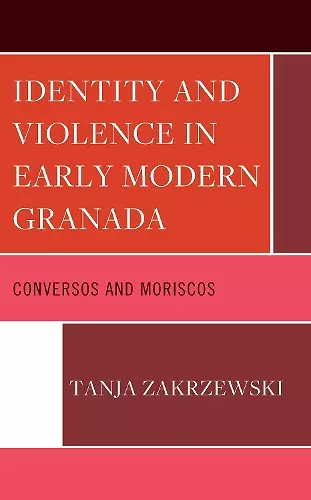Identity and Violence in Early Modern Granada
Conversos and Moriscos
Format:Hardback
Publisher:Bloomsbury Publishing PLC
Published:15th Apr '23
Currently unavailable, and unfortunately no date known when it will be back

In Identity and Violence in Early Modern Granada: Conversos and Moriscos, Tanja Zakrzewski argues that Conversos and Moriscos, despite being distinct sociocultural groups within Spanish society, still employed the same arguments and rhetorical strategies to establish and defend their place within society. Both Conversos and Moriscos relied on contemporary notions of honour, authority, and loyalty to emphasize that they are true Spaniards - not despite their New Christian heritage but because of it. This book offers an entangled narrative of their history and examines how their notions of honour and hispanidad shaped their socio-cultural identities during the time of the socio-cultural identities during the time of the Alpujarras Rebellion.
In this lucid, methodologically sensible, and well-written work, Tanja Zakrzewski does something that has hitherto been rare: She attempts to deliver an 'entangled history' of early modern New Christians (judeoconversos) and Moriscos. Instead of treating conflicts involving these ethnic populations merely as matters of distinct “religions,” she concentrates on the formative influence that intercommunal conflict exerted upon both disadvantaged groups more or less simultaneously and with broadly similar effects. Specifically, Zakrzewski demonstrates how, in grappling with Christian hostility and persecution against Moriscos, one judeoconverso and two Morisco authors (re)formulated the identities of Granada's ethnoreligious and political communities by contesting yet also engaging dominant Christian definitions of culture.
As a work of philology and an exercise in the historical contextualization of texts, Identity and Violence in Early Modern Granada summons new possibilities in the study of relations between the ethnoreligious groups that comprised Granada's cultural tapestry in the sixteenth and seventeenth centuries; of rhetoric as a shared tool of identity formation; and of the creative search for dignity and social belonging under conditions of duress. Social scientists and humanists alike will benefit from the work's clear and sophisticated approach to phenomena of self-definition and boundary-setting.
ISBN: 9781666915341
Dimensions: 230mm x 162mm x 20mm
Weight: 508g
254 pages